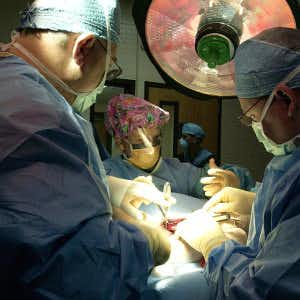
Shoulder replacement surgery is becoming increasingly common. Now, researchers writing in The BMJ say that patients should be warned that the risks of this procedure are higher than doctors originally thought.
Risks of Shoulder Replacement Surgery:
The investigators reviewed hospital records relevant to 58,000 operations in the UK (Craig et al, The BMJ, Feb. 20, 2019). The records spanned the time frame between 1998 and 2017. During that time, the number of surgeries to replace arthritic shoulder joints increased more than five-fold.
Need for More Shoulder Surgery:
What the investigators found is sobering. One in four men between 50 and 59 will need further surgery on that shoulder within five years. That is a surprisingly high rate of repeat surgery.
Complications of Shoulder Replacement Surgery:
Like any surgery, shoulder replacement surgery carries risks of complications. The risk of a complication such as a blood clot or infection was 1 in 28 during the first post-surgical month. In the first three months, the risk of problems including heart attacks was 4.6 percent. Women between 50 and 65 years old were 61 times more likely to develop a pulmonary embolism during the 30 days following surgery than women who’d had no surgery.
Complications in Older Patients:
In addition, people over 85 may be more likely to have severe arthritic damage to the joints, including shoulder joints. However, older people who underwent this kind of surgical procedure experienced high rates of serious complications. One in nine older women had an infection, major blood clot, heart attack or stroke or died within three months. The rate for older men was even more alarming, at one in five. The authors of the study encourage their colleagues to counsel patients about the risks as well as the benefits of this kind of surgery.
In their words:
“Patients need to be informed of these levels and carefully counselled about the potential risks of serious adverse events. The alarmingly high rates of adverse events in elderly patients with comorbidities suggests that better approaches to patient selection, preparation, and postoperative care might be required.”

